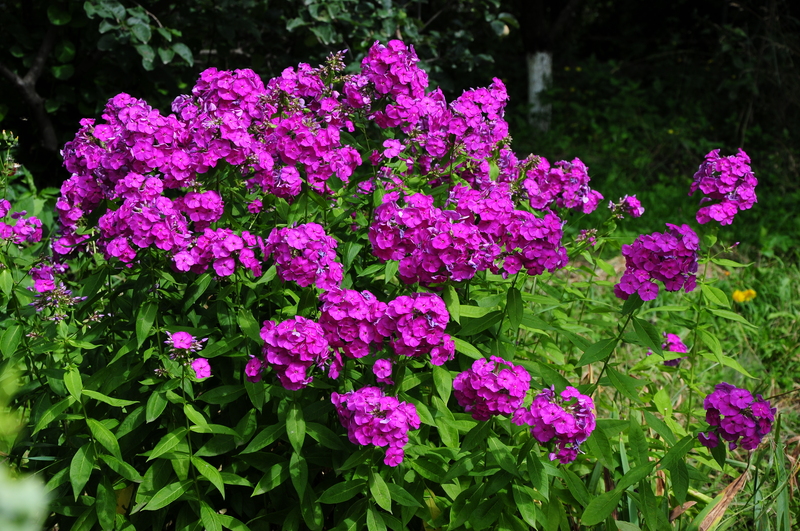The Organic Pathway to Precious Soil
Posted on 10/06/2025
The Organic Pathway to Precious Soil: A Comprehensive Guide
Unlocking the secrets of thriving gardens, nourishing crops, and sustainable landscapes begins with understanding the journey from raw organic materials to precious soil. This pathway, fueled by the forces of nature and refined by human ingenuity, holds the key to sustainable land stewardship, food security, and a healthier planet.

What Does "Precious Soil" Mean?
Before diving into the organic methods that lead to the creation of premium soil, it's vital to clarify what makes soil "precious." Precious soil isn't simply dirt--it's a living, breathing ecosystem that supports plant health, retains water, sequesters carbon, and is resilient against pests and diseases. The hallmark of precious soil is rich organic matter, diverse microbial communities, optimal structure, and nutrient balance.
- High Humus Content: Supports plant growth and water retention.
- Diverse Microbiology: Bacteria, fungi, and earthworms promote soil health.
- Balanced Nutrients: Enriches plants naturally without reliance on chemicals.
- Good Structure: Soil particles form aggregates, enhancing aeration and drainage.
Why Is "Precious Soil" Essential?
Soil health is the cornerstone of organic farming and sustainable gardening. Fertile organic soil is critical for:
- Robust plant growth
- Reduced need for synthetic fertilizers and pesticides
- Increased food production and quality
- Carbon storage & climate change mitigation
Therefore, the organic journey to creating such soil is crucial for environmental resilience and productive agriculture.
The Organic Pathway: From Waste to Wealth
The organic approach to soil building leverages nature's cycles. By returning organic materials--such as leaves, food scraps, manure, and crop residues--back to the earth, we initiate decomposition. This breakdown process transforms waste into humus, enriching the earth's top layer and creating lasting fertility.
The Pillars of Organic Soil Building
- Composting: The foundation of the organic pathway. Managed piles of yard and kitchen waste break down into nutrient-rich compost.
- Mulching: Covering the soil with organic materials to prevent erosion, retain moisture, and regulate temperature.
- Green Manures & Cover Crops: Plants grown specifically to be chopped and incorporated into the soil, boosting organic matter and nitrogen.
- Lesser or No-Till Practices: Minimizing disturbance to preserve soil structure and life below the surface.
- Natural Fertility Inputs: Using compost teas, worm castings, and biochar as organic amendments to nourish soil life.
Step-By-Step: The Organic Pathway in Action
1. Composting: Turning Waste Into Black Gold
Composting is the most accessible and direct method of transforming organic materials into precious soil. The process mimics natural decomposition but accelerates it through managed conditions of air, moisture, and temperature.
- Balance "Greens" and "Browns" - Mix nitrogen-rich materials (e.g., kitchen scraps, grass clippings) with carbon-rich materials (e.g., dry leaves, cardboard) at a roughly 1:3 ratio for optimal decomposition.
- Maintain Moisture - The compost should feel like a wrung-out sponge; not too wet, not too dry.
- Turn Regularly - Aerate the pile every 1-3 weeks to supply air for microbial activity.
- Let It Cure - Mature compost has an earthy smell and crumbly texture.
Upon completion, this compost is spread on vegetable beds or orchard rows, instantly boosting soil organic matter content and helping to create premium organic soil.
2. Mulching: The Blanket That Protects and Enriches
Mulch is the secret ingredient of resilient organic gardens. Whether wood chips, straw, leaves, or grass clippings, mulch shields the soil, reduces evaporation, prevents weed growth, and attracts beneficial organisms. As it breaks down, it further feeds the micro-life below, contributing to the production of a fertile organic soil.
3. Cover Cropping: Living Fertilizer for the Soil
Cover crops like clover, rye, or vetch aren't grown for harvest but for what they return to the earth. Their deep roots open compacted soils, fix atmospheric nitrogen, and protect topsoil from erosion. When chopped and left to decompose, they release nutrients and organic matter, fast-tracking the formation of valuable organic-rich soil.
4. No-Till and Minimal Tillage: Preserving Soil Integrity
Tilling disrupts soil structure, destroys earthworm tunnels, and oxidizes organic matter. By practicing minimal or no-till gardening, you maintain the underground architecture essential for healthy, precious soil. This organic pathway keeps microbial and fungal networks intact, ensuring nutrient cycles hum along efficiently.
5. Specialty Organic Amendments
- Worm Castings - Earthworms process organic matter into nutrient-dense castings, a true superfood for plants and soil organisms.
- Biochar - A special form of charcoal that increases soil carbon, improves water retention, and serves as a habitat for beneficial microbes.
- Compost Teas - Liquid extracts brewed from quality compost to inoculate soils and plants with beneficial organisms and nutrients.
Each of these naturally derived amendments enriches the precious topsoil, aligns with organic growing principles, and fosters thriving garden ecosystems.
The Benefits of Organic Soil Creation
The journey along the organic pathway to precious soil yields a range of benefits that extend far beyond the garden bed:
1. Enhanced Plant Growth and Health
- Organic-rich soils offer slow-release nutrients, reducing risk of fertilizer burn.
- Diverse soil microbes help suppress plant diseases.
- Improved root development due to ideal soil structure and moisture.
2. Water Conservation & Climate Resilience
- Organic matter holds up to 20 times its weight in water, reducing irrigation demand.
- Mulched and covered soils are cooler and more drought-tolerant.
- Increased carbon sequestration helps mitigate climate change effects.
3. Biodiversity & Ecological Health
- Supports a wide array of beneficial life: earthworms, insects, bacteria, and fungi.
- Builds habitat for pollinators and other garden allies.
4. Reduction in Chemical Inputs
- Rich, living soils reduce the need for synthetic fertilizers and pesticides.
- Healthier plants are naturally more resistant to pests and diseases.
Common Questions About Building Precious Organic Soil
What are the main sources of organic matter?
Kitchen scraps, yard trimmings, livestock manure (well-composted), cover crops, and shredded leaves are the foundation for most organic soil-building efforts.
Can I create precious soil in any climate?
Yes! While decomposition rates vary, organic methods can be scaled and adapted for almost any climate, from humid tropics to cool temperate zones.
How long does it take to build up fertile, precious soil?
Improvements are often visible within one season, but true transformation into organic-rich, resilient soil can take 2-3 years of consistent organic management.
Is organic soil-building suitable for large scale agriculture as well as home gardens?
Absolutely. While techniques and scales may differ, the principles--returning organic matter and nurturing soil life--apply everywhere from backyard plots to multi-acre farms.
Challenges & Solutions on the Organic Soil Pathway
- Pest Pressure: Food-rich compost can attract pests. Solutions include covering compost bins, turning frequently, and avoiding meat or dairy.
- Weeds: Some organic mulches may introduce weeds if not aged properly. Use thoroughly composted materials and practice regular weed management.
- Compost Imbalance: Too much green material leads to odors; too much brown slows decomposition. Adjust ratios as needed.
- Labor Intensity: Turning compost or spreading mulch can be work-intensive. Share duties within communities or with neighbors.
Organic Soil Building Around the World: Success Stories
From Indian farmers reviving degraded land with cover crops and compost, to community gardens in urban America restoring vacant lots, the organic pathway is breathing new life into soils worldwide. In Cuba, the "Organoponico" movement transformed city blocks with raised beds of organic-rich soil, producing fresh food and strengthening food security. These stories underscore the universality and adaptability of organic soil restoration practices.

The Role of Precious Soil in Sustainable Living
As concerns about climate change, food security, and biodiversity loss mount, the importance of precious, living soil becomes ever more apparent. By walking the organic pathway--composting, mulching, reducing tillage, growing cover crops, and applying natural amendments--we forge a sustainable future for ourselves and the planet. Healthy soil is our most precious resource; caring for it is not optional, but essential.
Start Your Organic Pathway Journey Today
- Begin a compost pile or bin; turn kitchen waste into garden gold.
- Mulch your garden beds--grass clippings, straw, wood chips all work well.
- Experiment with a small patch of cover crops this season.
- Consider vermicomposting (worm bins) for even richer organic matter production.
- Reduce tillage, allowing soil biology to flourish.
Embrace these techniques, and you'll witness the gradual and remarkable transformation of ordinary earth into precious, fertile soil--fueling thriving gardens, productive farms, and a healthier world for generations to come.
Conclusion: Treasure the Path to Precious Soil
The organic pathway to precious soil is a time-tested journey paved with natural wisdom and scientific insight. By partnering with natural processes--composting, mulching, integrating cover crops, and nurturing biodiversity--we convert waste into wealth and restore the living foundation of our world. Treasure this pathway, nurture your soil, and join a growing global movement to heal the earth from the ground up. The future of gardening, farming, and the environment depends on it.
Latest Posts
Enhancing Urban Landscapes with Vertical Gardening
Stretch Your Budget with These Low Maintenance Garden Tips
Adapting gardening techniques with containers



